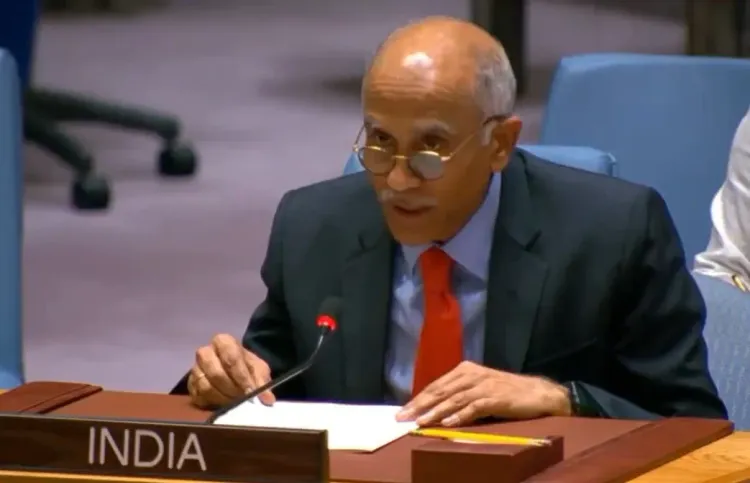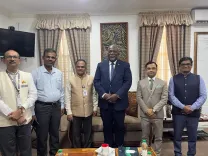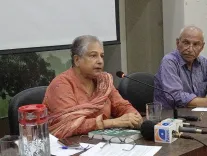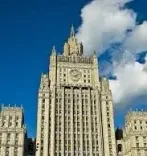How is India Defending Operation Sindoor in Light of UNSC Statements?

Synopsis
Key Takeaways
- India launched Operation Sindoor in response to the Pahalgam terror attack.
- Accountability for sponsors of terrorism is emphasized by the UNSC.
- Operation Sindoor is non-escalatory and focused on specific targets.
- The nature of conflicts is evolving due to non-state actors and technology.
- Reform of the UNSC is deemed necessary for its credibility.
United Nations, July 23 (NationPress) In its defense of Operation Sindoor, India has referenced the Security Council's statement regarding accountability for the sponsors of the Pahalgam terror attack. India asserted that a “serious cost” should be imposed on those who facilitate cross-border terrorism.
India's Permanent Representative, P. Harish, stated on Tuesday that New Delhi initiated Operation Sindoor in alignment with the unanimous Security Council statement from April 25, which emphasized the necessity to hold accountable the perpetrators, organizers, financiers, and sponsors of the Pahalgam attack.
Operation Sindoor, which targets terrorist camps in Pakistan and Pakistan-occupied Kashmir (PoK), was described as “focused, measured, and non-escalatory” in nature, according to Harish.
He cautioned that the landscape of terrorism is altering the dynamics of international conflicts.
“The nature of conflicts has transformed, with an increase in non-state actors often supported as proxies by state actors. This includes cross-border funding, arms trafficking, training of terrorists, and the dissemination of radical ideologies facilitated by modern digital and communication technologies,” he remarked.
Earlier, Pakistan’s Deputy Prime Minister Mohammad Ishaq Dar, who chaired the Council's open debate, raised issues concerning Kashmir and India's suspension of the Indus Water Treaty.
As president of the Council this month, Pakistan labeled the debate “Multilateralism and Peaceful Settlement of Disputes”, attempting to introduce third-party involvement, which India has consistently rejected.
Dar expressed, “Pakistan remains a firm believer in the promise and power of multilateralism.”
He criticized the Council for its inability to implement its resolutions on Kashmir, asserting that “selective implementation of Council resolutions, double standards, and the politicization of humanitarian principles have eroded its credibility and effectiveness.”
Resolution 47 on Kashmir, adopted in 1948, requires Pakistan to withdraw its troops and citizens and cease support for those fighting in the region.
Dar highlighted that the mechanisms outlined in the UN Charter’s Chapter VI for peaceful dispute resolution are “underutilized or selectively applied.”
However, Harish countered that Chapter VI “begins by recognizing that it is the ‘parties to a dispute’ who must first seek a solution through peaceful means of their own choosing.”
“The national ownership and consent of parties are crucial for any attempt to achieve peaceful conflict resolution,” he added.
Harish also reminded the Council of the pressing need for reform due to the “growing doubts about the multilateral system, especially the United Nations.”
“The serious questions regarding the representativeness of the UN Security Council must be addressed with urgency,” he stated.
In efforts to enhance the representation of critical international groups, “India is proud to have facilitated the inclusion of the African Union in the G-20 platform during its presidency,” he concluded.








